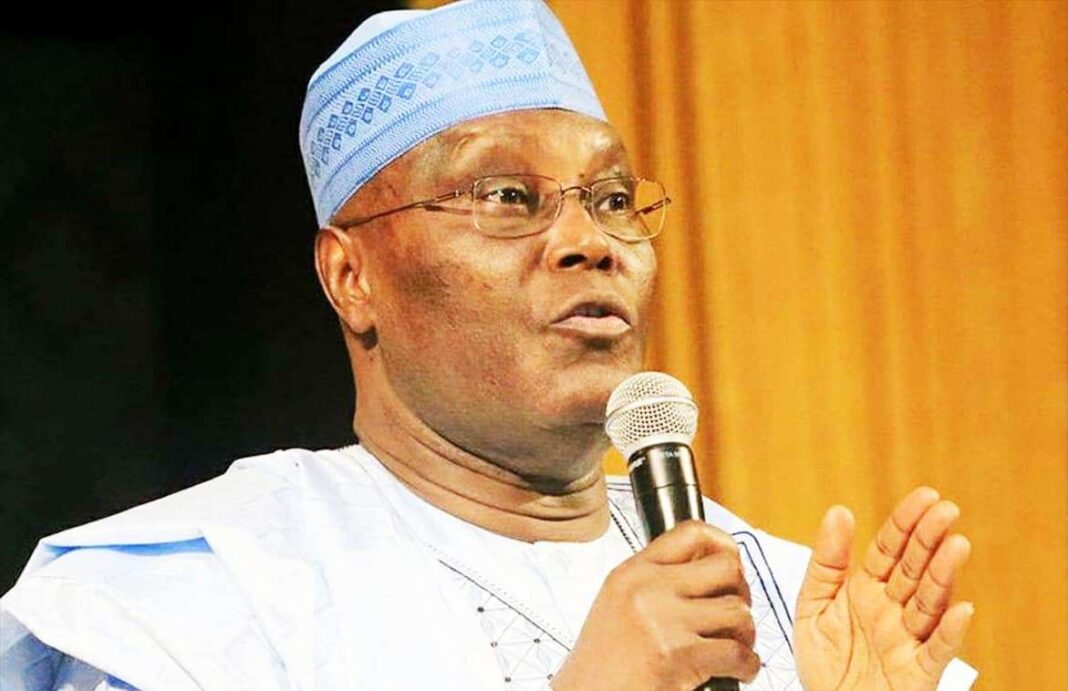Atiku Abubakar, a former vice president of Nigeria, has opposed the directive of President Bola Ahmed Tinubu to the Central Bank of Nigeria, CBN, to take over the receipt of crude oil sale from the Nigeria National Petroleum Company Limited, NNPCL.
The president gave the order recently following public outrage against the NNPCL for not remitting enough foreign exchange from crude oil sales to the federal government.
For instance, a former Central Bank of Nigeria, CBN Governor, Lamido Sanusi, last year, criticized the government-owned oil company for under-remitting forex to the government from crude oil sales.
Presidency sources informed the magazine that Tinubu order was based on the need to ensure accountability in the NNPCL.
The former vice president disagreed.
Regardless of the intension of the president, Abubakar said it’s illegal to do so, as this contradicts the extant NNPCL laws.
Atiku, the presidential candidate of the Peoples Democratic party, PDP, in the last year election, made this known on his official X handle on Thursday, stressing that it is arbitrary on the part of the president to want to transfer the function of NNPLC to the CBN.
The full statement:
Without prejudice to the possibility of any good that was intended in the decision of the Federal Government to make the Central Bank of Nigeria (CBN) take over the responsibility for crude oil sales proceeds from the Nigerian National Petroleum Company Limited (NNPCL), it must be clearly stated that the action is not legal in its application.
Although, as usual, of the current administration, little has been communicated to the public about explaining details of the decision.
According to what is publicly available, the President has issued a directive that henceforth, the NNPCL would submit receipts for crude oil sales to CBN for vetting and documentation.
Whatever may be the merit of the new arrangement, the presidential directive is a violation of the legal status of the NNPCL.
It is an arbitrary order capable of undermining the operational independence of the NNPCL.
By this order, Mr. President has wrested control of the finances of the NNPCL and donated the same to the Federal Ministry of Finance and the Central Bank of Nigeria.
This is an unprecedented act, without any legal or ethical basis. It is also a violation of the principle of due process in public administration.
State-owned enterprises are not subject to such arbitrary orders and have full control over their finances within the confines of their respective establishment laws.
The NNPCL is a creation of the Petroleum Industry Act 2021 (PIA), which was signed into law by the President of the Federal Republic of Nigeria on 16 August 2021.
The PIA makes extensive provisions for the formation, structure, governance, and operation of the NNPCL as an independent limited liability company in Sections 53 to 65 of the Act.
The government must, therefore, respect the provisions of the law and allow the NNPCL to run as an independent company based on sound commercial objectives and in line with international best practices and standard principles of corporate governance.
Only then would the new NNPCL grow into a formidable institution with track records, requisite technical and financial capacity, and readiness to operate in public space.
Any attempt to undermine the operational independence of the NNPCL will be a hindrance to any chances of attracting investments and attaining global relevance in the Petroleum Industry.
Let it also be stated that the Central Bank Act 2007 does not confer on the Central Bank of Nigeria, any responsibility for vetting the transactions of, or formulating and maintaining the internal controls and internal audits in state-owned enterprises, public or private.
The CBN should be allowed to perform its core functions as provided in the extant law.
To enhance transparency and accountability in the operation of the NNPCL, its bank accounts for crude sales proceeds (for example at Morgan Stanley) and the entire crude sales conversion circle can be trailed by Nigeria Extractive Industry Transparency Initiative (NEITI) and CBN.
Amongst other supportive measures to enhance transparency, the NNPCL board members can be better selected and reconstituted to include, if desired, representatives of the CBN and NEITI.
Discover more from The Source
Subscribe to get the latest posts sent to your email.








